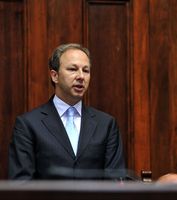- Serbia
Get to know Serbia
- Citizens
Culture and science
Health services
Pension and disability insurance
- Business
Employment
Economy
- Media
- Government
- Contact
Keep in touch
Contact form
Back
Keepin touch
Whether you have a question, comment, suggestion or any problem in the purview of the government, send us your message and we will try to respond as soon as possible. If your problem is not in our purview, we will forward your message to the relevant institution.
Q:
A:
Law on trade to provide stable market
Belgrade,
14 July 2010
Minister of Trade and Services Slobodan Milosavljevic said today that the Bill on trade should provide a stable and supplied market, more intense competition and a reduced state impact on trade.
Milosavljevic highlighted that the proposed regulation is systemic and significant not only for the trade sector, but also for the economic environment in Serbia, which will make our country more attractive to foreign investors.
Freedom of trade is the basic principle of this law that will be sustainable even after Serbia's entry into the EU, emphasised Milosavljevic.
All market stakeholders are equal before the law and are treated equally, and the Serbian market is integral and indivisible, the Minister outlined.
He explained that the law is a basic legal framework for market inspection, adding that market inspection should become an institution that educates and helps merchants.
Milosavljevic announced that one of the new features introduced by the Bill is that part of the inspection surveillance will be carried out by units of the local self-government through communal inspection.
The idea is to intensify cooperation with local self-governments which will reduce the amount of illegal trade in the streets.
The Bill on trade introduces a clear distinction according to the place of trade, to trade within a sale point and trade outside a sale point. The Bill also defines all forms of trading that exist or can appear on the market, such as hypermarkets, shopping malls and outlets.
This Bill will encompass material from three legal acts – the Law on trade, the Law on conditions for performing trade, providing services in trade and inspection surveillance and the Law on prices.
Freedom of trade is the basic principle of this law that will be sustainable even after Serbia's entry into the EU, emphasised Milosavljevic.
All market stakeholders are equal before the law and are treated equally, and the Serbian market is integral and indivisible, the Minister outlined.
He explained that the law is a basic legal framework for market inspection, adding that market inspection should become an institution that educates and helps merchants.
Milosavljevic announced that one of the new features introduced by the Bill is that part of the inspection surveillance will be carried out by units of the local self-government through communal inspection.
The idea is to intensify cooperation with local self-governments which will reduce the amount of illegal trade in the streets.
The Bill on trade introduces a clear distinction according to the place of trade, to trade within a sale point and trade outside a sale point. The Bill also defines all forms of trading that exist or can appear on the market, such as hypermarkets, shopping malls and outlets.
This Bill will encompass material from three legal acts – the Law on trade, the Law on conditions for performing trade, providing services in trade and inspection surveillance and the Law on prices.
-
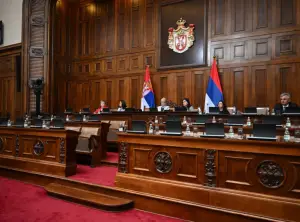 Belgrade, 7 November 2025
Belgrade, 7 November 2025Parliament adopts multiple laws
-
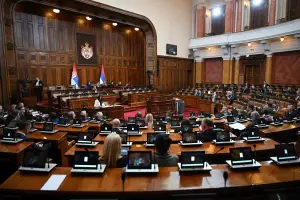 Belgrade, 22 October 2025
Belgrade, 22 October 2025Parliament adopts several laws, ratifies multiple international agreements
-
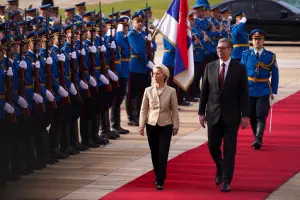 Belgrade, 15 October 2025
Belgrade, 15 October 2025Vučić welcomes Ursula von der Leyen in front of Palace of Serbia
-
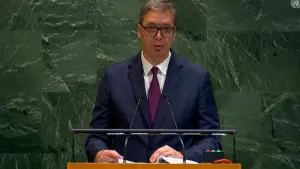 Belgrade/New York, 24 September 2025
Belgrade/New York, 24 September 2025Respect for UN Charter obligation of all countries
-
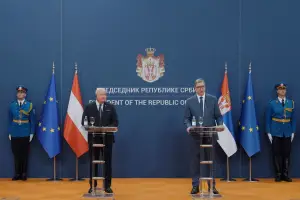 Belgrade, 13 August 2025
Belgrade, 13 August 2025High level of understanding, agreement between Serbia, Austria
-
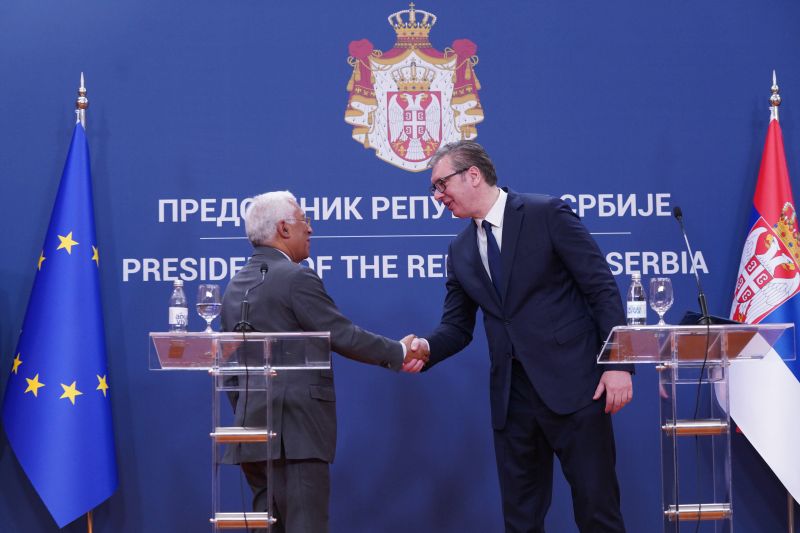 Belgrade, 13 May 2025
Belgrade, 13 May 2025Serbia's sincere, firm commitment to European path, reforms and dialogue
-
 Belgrade, 13 May 2025
Belgrade, 13 May 2025Vučić welcomes European Council President in front of Palace of Serbia
-
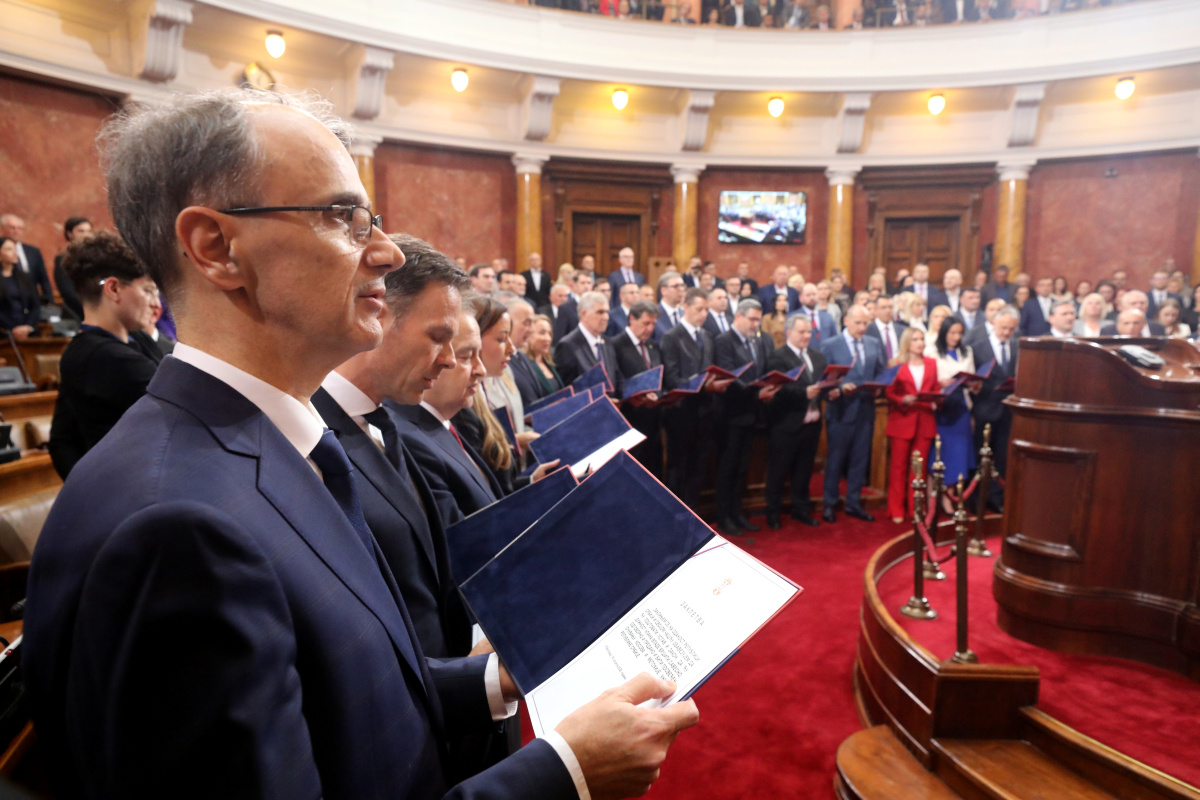 Belgrade, 16 April 2025
Belgrade, 16 April 2025New Serbian government voted in
-
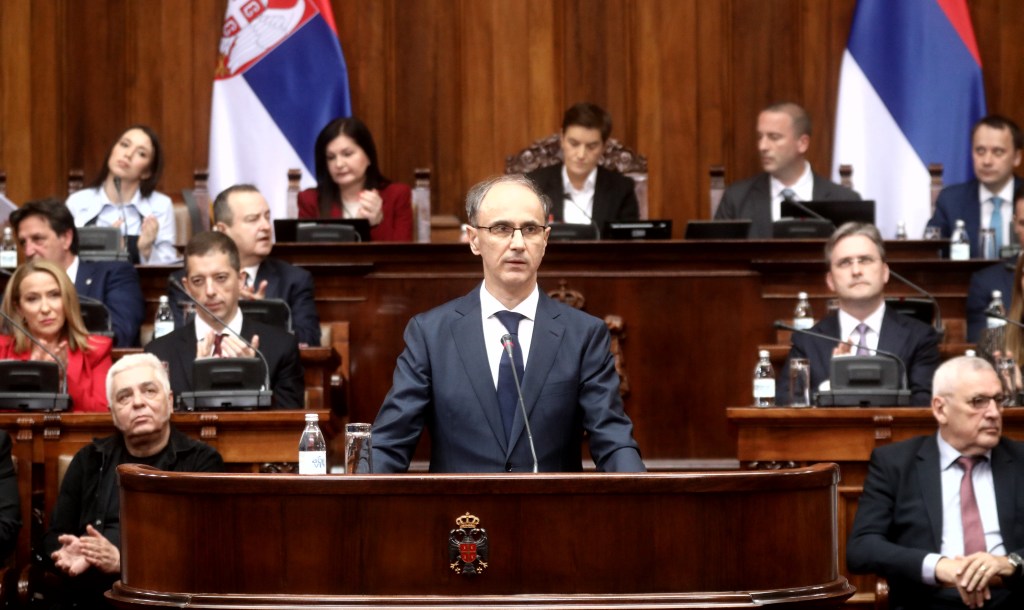 Belgrade, 15 April 2025
Belgrade, 15 April 2025Building unity through dialogue, tolerance, respect for value system
-
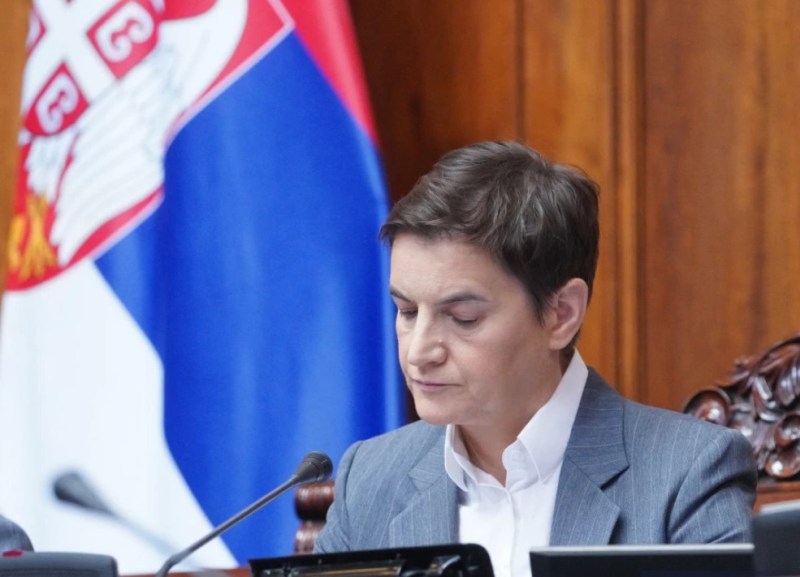 Belgrade, 14 April 2025
Belgrade, 14 April 2025National Assembly speaker convenes session on government election

